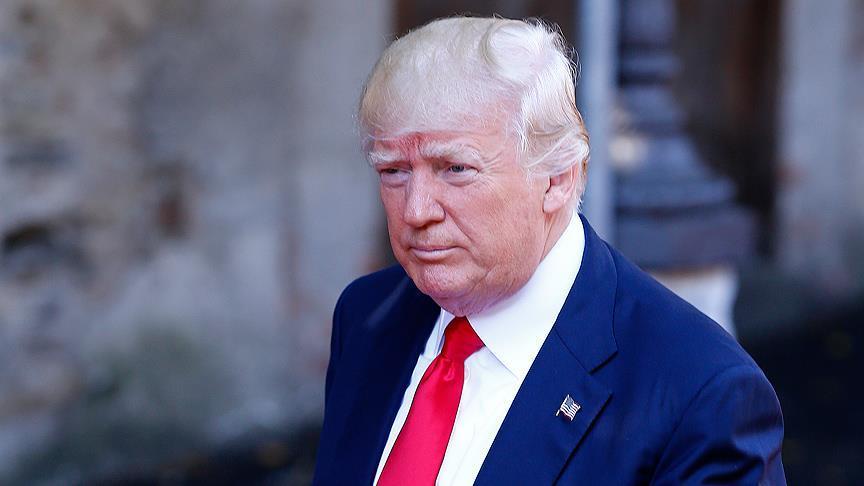
By Michael Hernandez
WASHINGTON
In the wake of the largest white supremacist rally in a decade, President Donald Trump was steadfast.
Not in his denunciation of the assorted neo-Nazis, Ku Klux Klan and white nationalists who swarmed Charlottesville, Virginia, but steadfast in his refusal to unequivocally condemn them.
Rather than issue a statement that divorced himself from even the appearance of sympathy, he wavered between saying there were good people on both sides of the demonstration and cast blame for the violence equally.
That is until he finally dug in his heels and bemoaned the removal of confederate monuments -- appearing to give the presidential seal of approval to the original rationale for the two-day hate rally that left an counter-protester dead.
“The name of the game for him is to not say anything that’s going to alienate people on the far right, who are a lot of his voters,” said Anthony DiMaggio, a professor of political science at Lehigh University.
“He comes from that part of the political spectrum – the far right – so he’s just, I guess you could say, being honest about being prejudiced,” he added. “He’s being an honest bigot.”
But while his response has prompted praise from white nationalists like Richard Spencer and former KKK Imperial Wizard David Duke, the American president has put himself at odds with a dynamic set of adversaries, including many within his own party.
Mitch McConnell, the Republican Senate majority leader, reportedly fumed privately in the wake of Trump’s equivocation before issuing a stern statement: “There are no good neo-nazis”.
Beyond Washington, Trump’s endorsement of extremist groups has further isolated him from a community he holds near and dear: the business elite.
Amid the fallout, Trump disbanded two presidential advisory councils as participants slowly fell out, and was forced to nix a planned third.
“Business Republicans are a big part of the Republican Party,” remarked Hans Noel, a professor of politics at Georgetown University.
“By elevating the most unpopular elements of a conservative coalition, even the parts that most conservatives don’t like – the most extreme, racially-charged elements of the coalition -- he’s going to start pushing people away from the party,” he said. “Whether the pain of that is felt in 2018, or 2020 or a generation from now remains to be seen, but it’s not good for the brand.”
At least in the immediate term, Trump is feeling the heat from Republicans.
In a rare stern public rebuke, Senator Bob Corker questioned Trump’s presidential competence, saying the president “has not demonstrated that he understands the character of this nation”.
He and McConnell are not alone.
At least nine other Republicans have called out Trump by name while dozens of others have issued implicit condemnations of his actions, including the two former presidents named Bush.
The blows to Trump’s intra-party support “may well be heading towards a cascading effect of enough Republicans [joining] with others and [bringing] an end to the Trump presidency”, said Bruce Jentleson, a professor of public policy at Duke University.
“It’s still not 50 percent probability, but it ain’t 5 or 10 percent,” he said. “Charlottesville has really -- he’s made his own bad weather here.”
While impeachment or removal from office under an obscure provision in the Constitution is more possible after Charlottesville, it’s certainly not a foregone conclusion.
More likely for now at least, Trump is going to be faced with major blows to his already meager ability to move Washington on policy.
Even before his latest comments on Charlottesville his popularity hovered at historic lows, and he has yet to lay claim to a single legislative victory.
“This seems to be the kind of thing that’s going to accelerate Trump’s declining popularity, and that’s what it will take for Republicans to oppose him,” said Noel.
With multiple inquiries ongoing into the Trump campaign's alleged ties to a Russian effort to influence last year's election, Trump can afford little ill news.
"If you put those things together, and then you really start to reach the inflection point where, whether its 25th Amendment of impeachment or some other process, it could happen," said Jentleson, referring to the constitutional article that allows a presidential cabinet to declare the commander-in-chief unfit for office.
In order for the president to turn the tide in Washington and Wall Street he would likely have to do something decidedly un-Trumplike: apologize.
That would give the Republican establishment an opening to at least not further distance itself from Trump, said Jentleson.
“It could give them some cover for not so much endorsing the president, but for not moving away from him. But what Trump has demonstrated is even if he were to do that I think within 72 hours it would be contradicted by him going back out on the attack,” he said.
“The whole scenario is highly unlikely, and even if we were to see a check-off-the-box effort I think it would have very thin credibility.”
Trump is only seven months on the job.
Anadolu Agency website contains only a portion of the news stories offered to subscribers in the AA News Broadcasting System (HAS), and in summarized form. Please contact us for subscription options.







